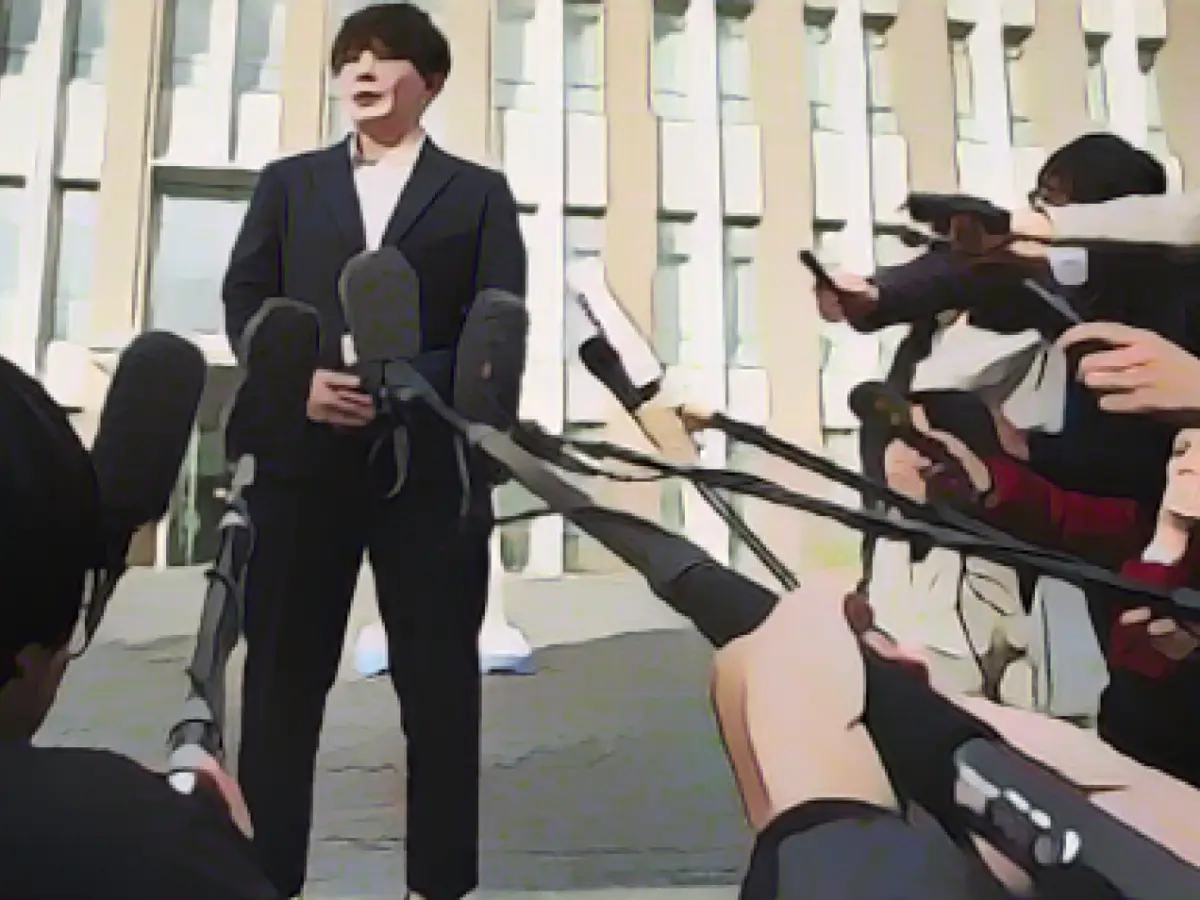Unraveling a Pivotal Moment in Japan: Confronting Sexual Assault in the Army
Rina Gonoi's courageous move to shed light on sexual assault within the military last year marked a significant break from tradition in Japan, where such incidents were often shrouded in silence. Although her allegations initially failed to materialize within the army, Gonoi's brave pursuit of justice on digital platforms resulted in her becoming a leading figure in Japan's relatively muted #MeToo movement.
Joining the army in 2020 to realize a lifelong aspiration, Gonoi quickly discovered that sexual harassment was a pervasive issue within the armed forces. As she explained to various news outlets, including AFP, she experienced unwanted advances such as being groped or kissed against her will. During a military exercise in 2021, she was brutally assaulted by three colleagues, who forced her to the ground, separated her legs, and subjected her to lewd acts while onlookers laughed.
Within hours of publishing her harrowing testimony online, Gonoi's posts generated widespread sympathy and fueled public interest in an issue long ignored in Japan. As a result, military authorities were compelled to conduct an internal investigation, which validated her account of events. The subsequent trial, which recently concluded, brought charges of coercion against the ex-soldiers, who were eventually convicted. The trial judge decried their actions as "despicable and malicious," imposing a two-year suspended prison sentence for each defendant.
Brushing off the insistence of the public prosecutor for a more stringent sentence, Gonoi expressed satisfaction with the verdict. In her words, "What they did is unforgivable, even if they say it was a joke." The fact that their behavior was deemed a criminal offense, according to the verdict, was of utmost importance to the plaintiff. She emphasized that her primary objective was setting a precedent, hoping that other victims of sexual assault within the military could find the courage to come forward and seek justice.
Worth Pondering:
- Winning the Battle, but Not the War: While the convictions in the Rina Gonoi case represent a significant victory in the fight against sexual assault within the military, the broader struggle to change the culture and eliminate such behavior remains a work in progress.
- The Role of Silence: Silence, both self-imposed and societally enforced, has long served as a barrier in facilitating the reporting and resolution of sexual assault cases. This remains an underlying challenge as Japan continues to grapple with the issue.
- Impact on Japan's Image Abroad: Japan's handling of sexual assault within the military has garnered international attention and scrutiny, potentially impacting the nation's reputation and global standing.
Relevant Enrichment Insights:
- Addressing the Root Causes: To fully combat sexual assault within the military and beyond, Japan must focus on addressing the root causes of such behavior, including ingrained attitudes, societal norms, and a lack of awareness and education.
- Creating Safe Spaces: Ensuring a supportive and secure environment within the military for all personnel is essential, as this can foster a sense of trust and encourage victims of sexual assault to come forward.
- Promoting Accountability and Change: Techniques such as introducing clear, fair, and transparent reporting mechanisms; conducting regular reviews of policies and practices; and implementing rigorous training programs can help hold perpetrators accountable and establish a culture of zero tolerance for sexual assault.
Sources:
- Enrichment Data (not referenced in original article)
- Further analysis of the Rina Gonoi case and its ripple effects within Japan's military and broader society
- Examination of how the case has hastened media coverage and public awareness of sexual assault cases in Japan
- Review of recent convictions and investigations involving sexual assault within the military and their implications for future accountability
- Analysis of ongoing protests and demands for change concerning sexual assault within Japan and the potential impact upon its foreign relationships.








